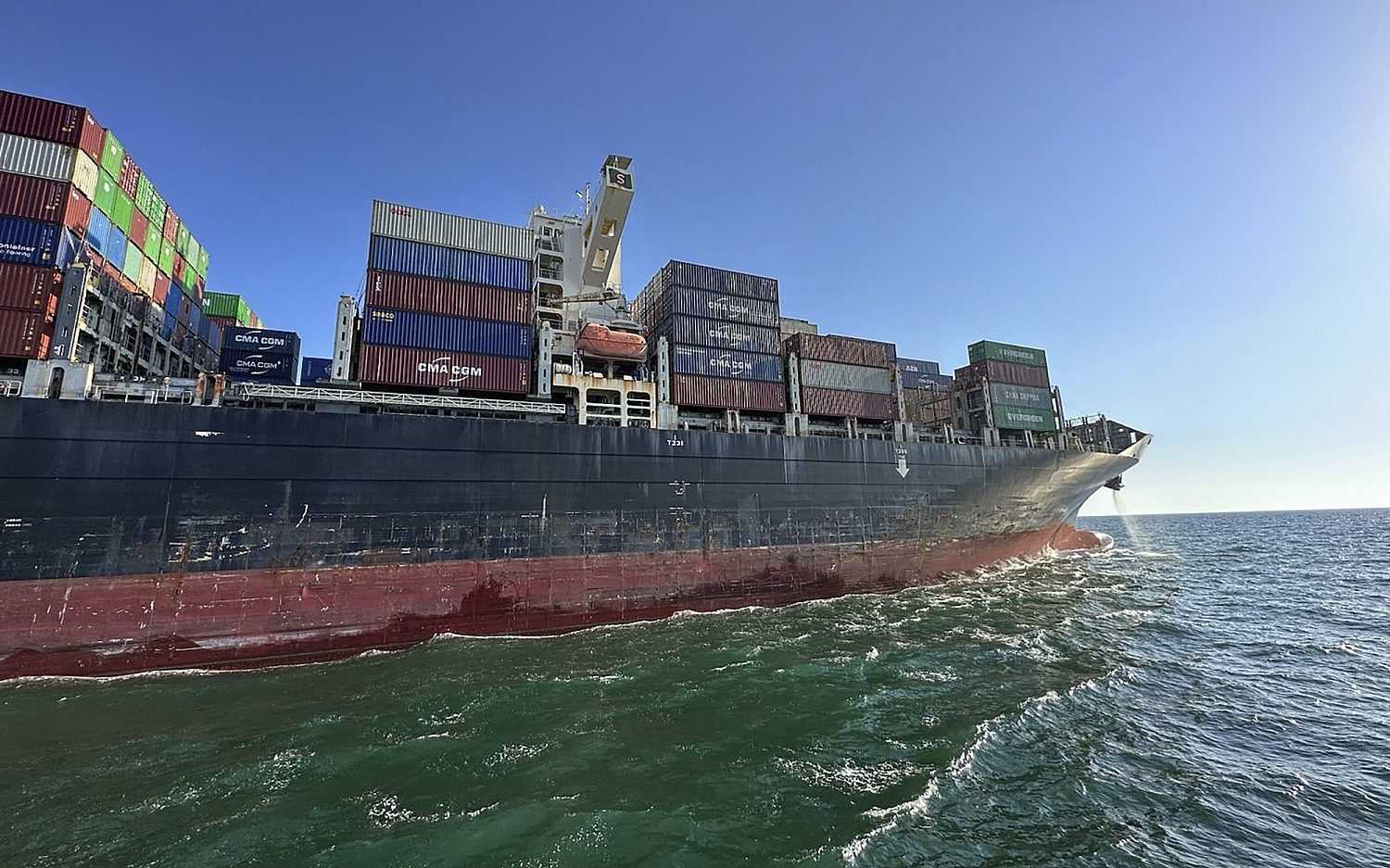“Hard NO.” Rubio slams UN plan for maritime carbon tax
The container ship Joseph Schulte leaves the port of Odesa, Ukraine, Aug. 16, 2023. Associated Press / Ukraine's Infrastructure Ministry Press Office

The United States firmly opposed a United Nations carbon tax set for a final vote this week, Secretary of State Marco Rubio said on Wednesday. The U.S. government would not allow the UN to tax American companies and citizens for carbon emissions, he said. The tax would increase energy, food, and fuel costs globally, he said. He urged other countries to oppose the measure to defend their sovereignty. The U.S. State Department last week also said it would contemplate imposing port fees, commercial restrictions, and sanctions on other countries that supported the plan.
The controversial Net-Zero Framework was developed by the UN’s International Maritime Organization. If formally approved this week, the framework would take effect in 2027. It would require large ocean-going ships to phase out traditional fuels or pay steep prices, according to the text of the framework. Shipping companies would need to pay for each metric ton of carbon dioxide emitted past certain limits, with charges ranging from $100 to $380 per metric ton depending on the ship’s specifications.
Would the approved framework be legally binding? For the 176 member states of the International Maritime Organization, yes. The United States has been a member since 1950, according to the organization’s website.
What would the maritime organization do with the carbon tax money? The UN organization would financially reward low-emission ships; fund innovation, infrastructure, and what it called “just transition initiatives in developing countries;” and fund technology development to transition the shipping industry to low-emission fuels, according to its website. The IMO could rake in $10-$12 billion annually, according to a Wall Street Journal estimate.
Dig deeper: Read my report on increasing trade restrictions between the United States and China.
An actual newsletter worth subscribing to instead of just a collection of links. —Adam
Sign up to receive The Sift email newsletter each weekday morning for the latest headlines from WORLD’s breaking news team.





Please wait while we load the latest comments...
Comments
Please register, subscribe, or log in to comment on this article.